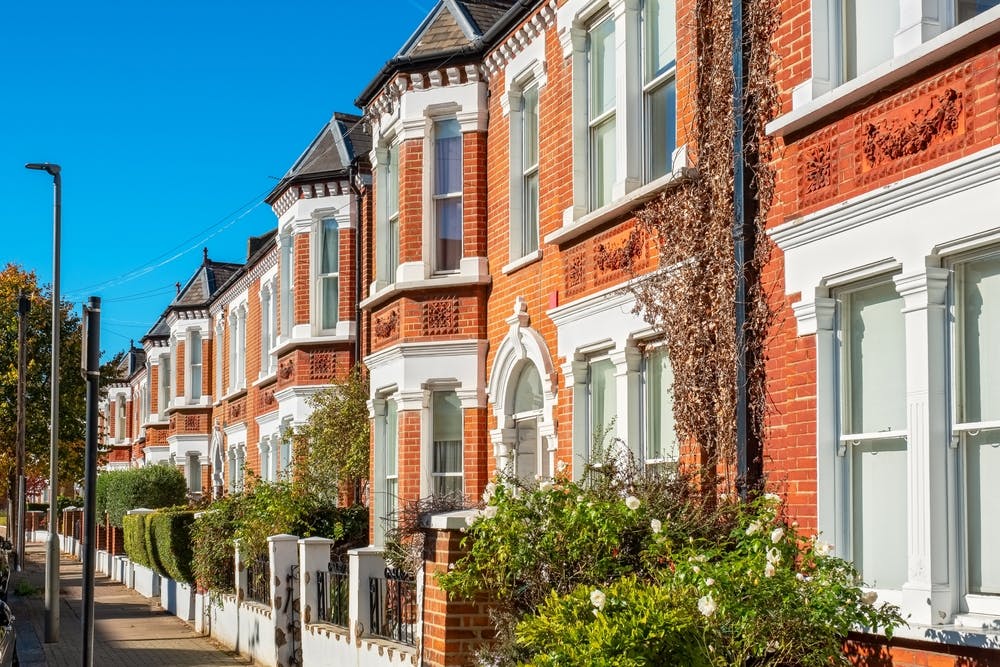5 Common Plumbing Problems in Older London Homes

London is full of charm — cobbled streets, period terraces, Georgian townhouses, and Edwardian conversions that give the capital its unique architectural character. But while the history is beautiful, the plumbing often isn’t.
At Pleasant Plumbers, we’re regularly called out to work on older London properties, and we’ve seen it all: cracked cast iron pipework, ancient lead lines, Victorian basements with no drainage, and more. And the truth is, most of the issues we see could have been spotted early — or even prevented altogether — with proper checks.
Whether you’re a homeowner, landlord, or facilities manager, here are 5 of the most common plumbing problems we see in older London buildings — and what to do about them.
1. Outdated Pipework
Many homes across London still rely on original lead, galvanised steel, or polybutylene pipes — materials long since deemed outdated or unsafe. These materials are prone to corrosion, internal rust, pinhole leaks, and water discolouration.
In many central London homes, the pipework hasn’t been touched for 40+ years. If you’re experiencing:
- Low water pressure
- Brown or metallic-tasting water
- Frequent leaks or clogs
…it’s time to get your pipework inspected. A full repipe may sound daunting, but it will drastically improve water quality and system efficiency — and protect the integrity of your home.
2. Damaged or Blocked Sewer Lines
Victorian and Edwardian properties often still rely on brick or clay sewer systems. Over time, these are highly susceptible to:
- Tree root ingress
- Ground movement
- Pipe collapse or cracks
- Accumulated waste due to narrow diameter pipes
Because most of these systems are underground, the problem often goes unnoticed until foul smells, slow drainage, or backflow occur. In high-rainfall periods, the issue becomes even more urgent.
A CCTV drain survey is a simple and cost-effective way to check what’s going on underground — especially if you’re purchasing a period property or dealing with recurring drain issues.
3. Failing Fixtures and Corroded Connections
From seized-up stopcocks to leaky basin taps, older fittings in London homes are often long past their service life. We regularly find:
- Corroded copper fittings
- Poor DIY repairs with incompatible materials
- Cross-threaded supply lines from outdated valves
These can cause leaks, pressure loss, or total flow failure, often while the property is vacant — wasting hundreds of litres and causing major damage before anyone notices.
We recommend regular visual checks and servicing of all exposed plumbing fixtures — especially before winter or when leaving the property unoccupied.
4. Bellied or Sloping Pipes
Subsidence, historic groundworks, and poor installations often cause drainage pipes in older London properties to sag or "belly". This disrupts water flow and causes waste to collect in low points — eventually leading to blockages or backflow into the property.
You might notice:
- Gurgling drains
- Slow sink or shower drainage
- Persistent damp or smells in lower ground rooms
This issue can’t be fixed with off-the-shelf drain cleaner — it requires a professional plumber to locate and replace the affected sections of pipe.
5. Ageing Water Heaters
Many older homes still rely on traditional gravity-fed hot water systems, often with aging copper cylinders or outdated immersion heaters. We also frequently come across neglected combi boilers that haven’t been serviced in years.
Common signs of failure include:
- No hot water or temperature fluctuations
- Smelly or discoloured water
- Water heater noises (banging, popping, hissing)
- Leaks from the boiler or tank
A faulty or unvented cylinder can be dangerous. If you live in an older London property and your hot water has become unreliable, it’s worth booking a service or replacement consultation.
Why You Shouldn’t DIY Plumbing in a Period Home
Old pipework doesn’t respond well to trial and error. We’ve seen too many situations where a minor DIY fix led to:
- Burst lead pipes
- Damaged heritage tiling
- Leaks into adjacent flats (particularly in converted Victorian buildings)
Period homes require specialist knowledge, especially when dealing with shared plumbing stacks, basements, or heritage restrictions.
That’s why we always recommend calling a Gas Safe or fully qualified plumber in London with experience in historic properties — like the team at Pleasant Plumbers.
Need a Trusted Plumbing Expert for Your London Property?
Whether you live in a Victorian terrace in Clapham, a converted warehouse in Shoreditch, or a Georgian townhouse in Marylebone — we’ve worked on plumbing systems just like yours.
We specialise in:
- Period plumbing repairs
- Pipe replacements in old properties
- Water quality testing
- Drain surveys for heritage homes
- Full heating and hot water upgrades
📲 Call or WhatsApp us on 0800 046 1000
📧 Email [email protected]
🌐 Visit pleasantplumbers.com
Searching 'Plumber Near Me?' Plumber London or Commercial Plumber London? We operate all across London! If you need a trusted plumber in London then get in touch with us today on 0800 046 1000 or email us on [email protected]
Pleasant Plumbers – Where Trust Flows Like Water.